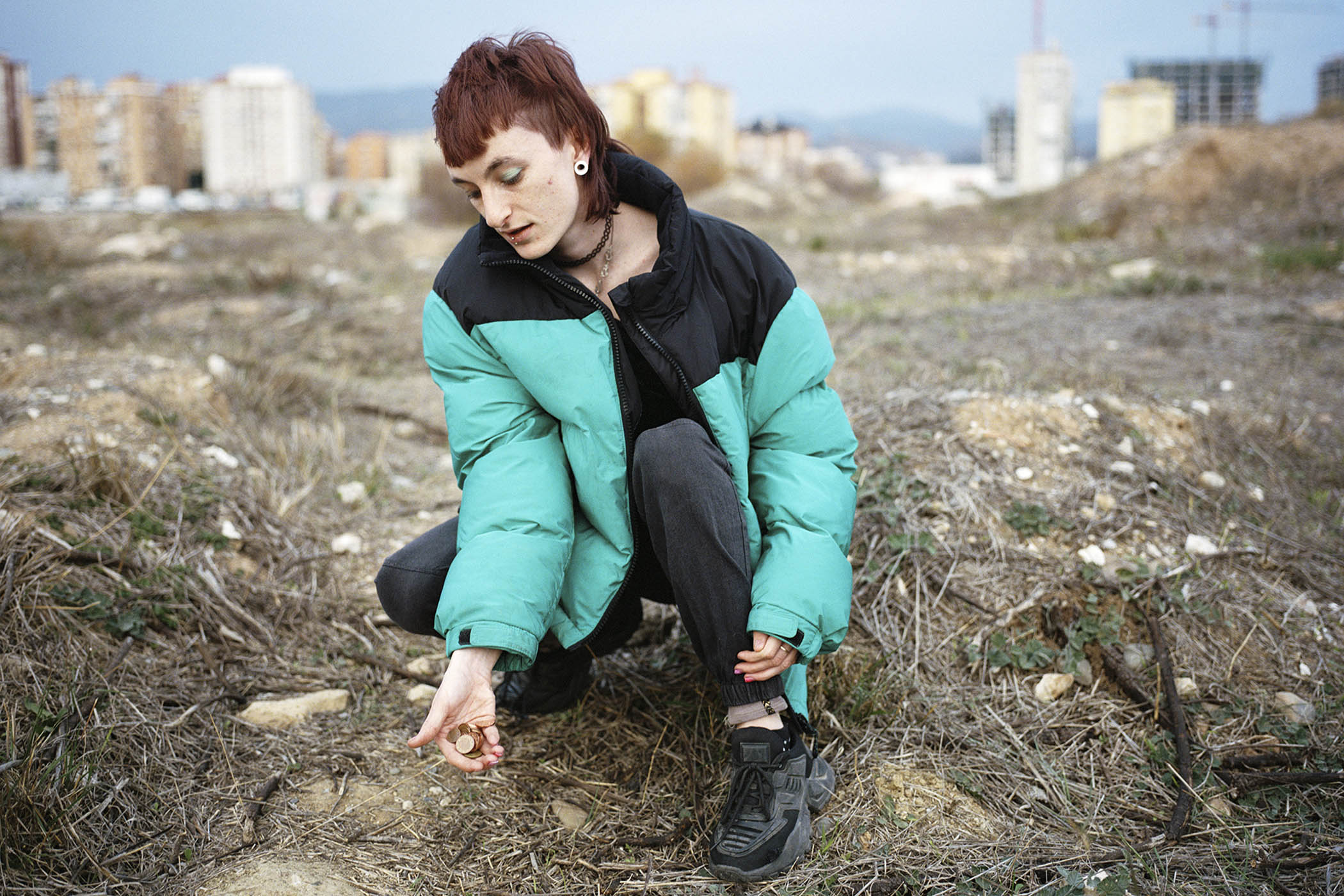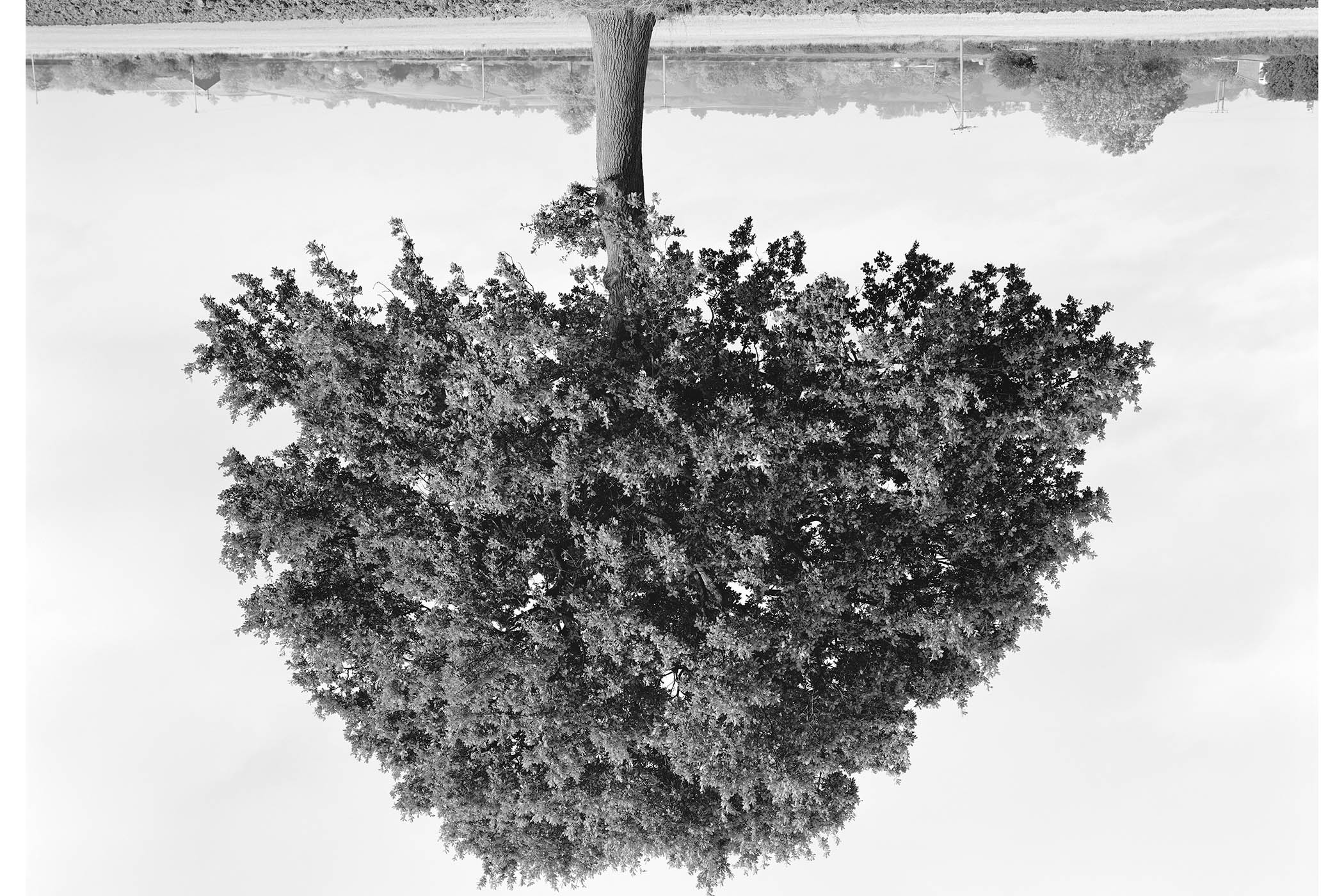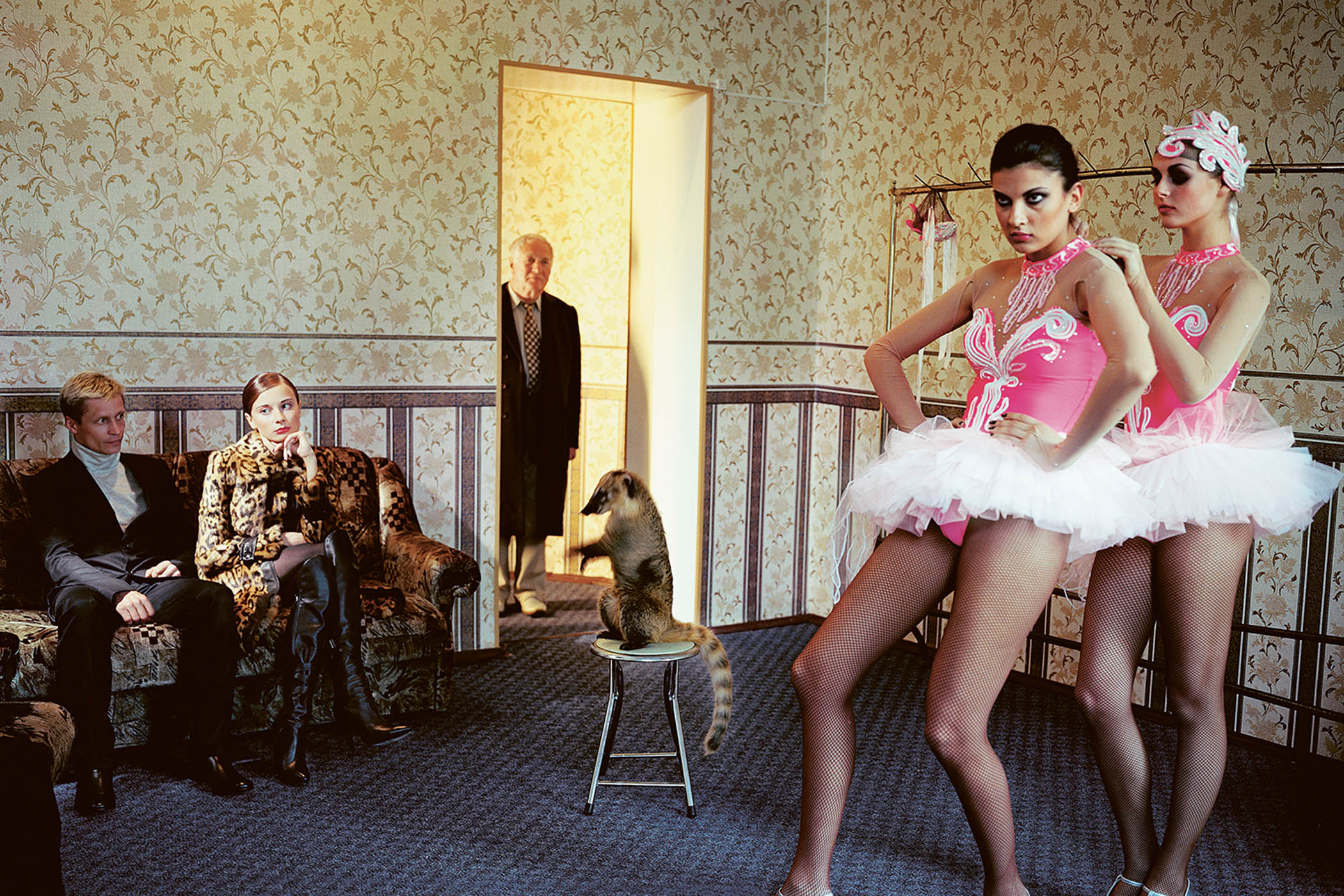Against the scrubby wasteland and its backdrop of high-rises she cuts a brilliant figure, the turquoise of her coat blasting through the washed-out greys and browns of peripheral Málaga. This is Pomelo, whom photographer Lúa Ribeira encountered in 2021 while seeking out young people involved in Spain’s burgeoning trap music scene. “I came across a clip of her singing a song she had written, which I instantly loved,” Ribeira recalls. “Later we met, along with one of her friends, and I photographed them both in this open space” – a clearing outside the city centre that once contained oil tanks.
Ribeira is a Magnum photographer known for her interest in youth movements and marginal communities as well as her willingness to collaborate with her subjects. Though she did not stage this image, which appears in her new photobook Agony in the Garden, she used what she calls “a theatrical approach in order to find something truthful”. The handful of coins, which Pomelo happened to have in her pocket, have mythical connotations – they put Ribeira in mind of Charon, the ferryman of the Greek underworld who required payment from his passengers – but also speak to the economic precarity afflicting many of Pomelo’s generation.
Ribeira was struck by the ease with which Pomelo and her peers reacted to her camera. “They use photography daily as a form of self-expression in social media and for themselves, and while there’s certainly a performative aspect to it,” she says, “there’s also a natural fluidity between them and the images.”
That’s one reason why this photograph and others in Agony in the Garden are so compelling. There are grand narratives at play in Ribeira’s book, with its biblical title and its store of mythical references. The locations she chooses around southern Spain feel somehow ancient, despite the apartment blocks and expanses of concrete. But the subjects who populate the series, both in their appearance and in the way they pose for the camera, are joltingly of today. They could have come from no other century but our own. Killian Fox
Newsletters
Choose the newsletters you want to receive
View more
For information about how The Observer protects your data, read our Privacy Policy



